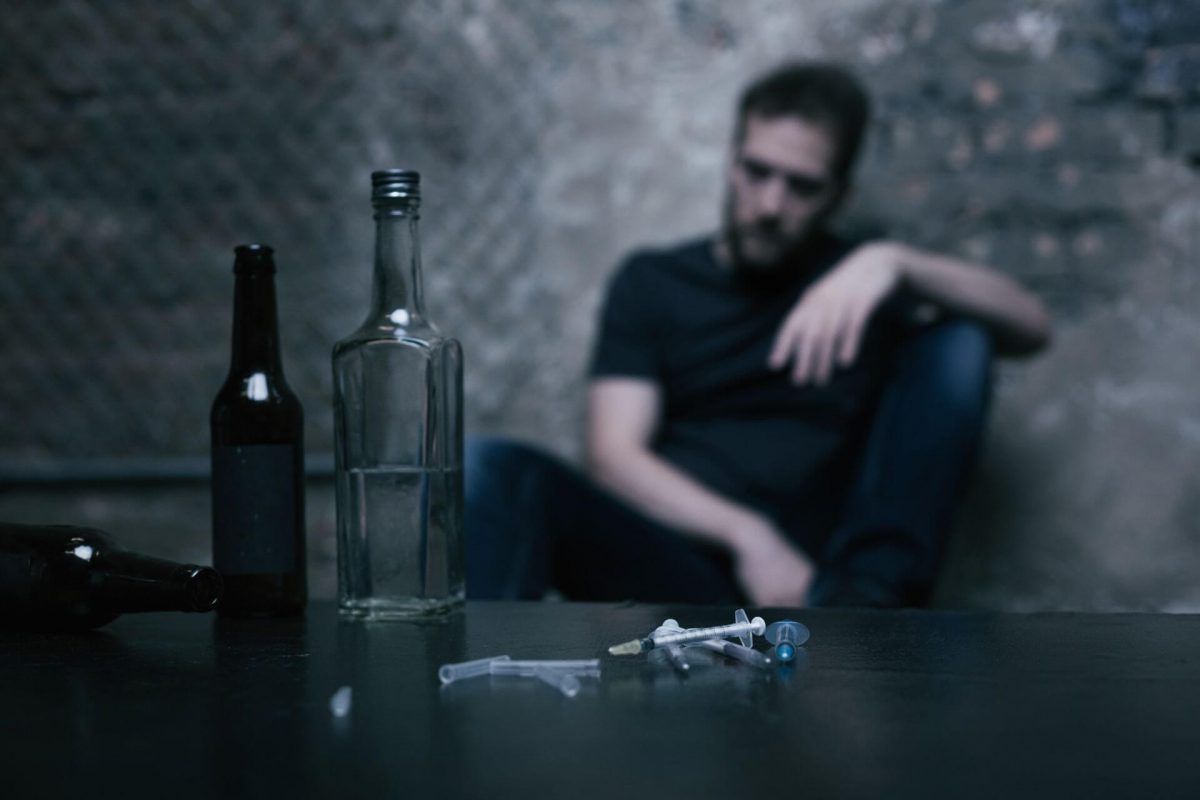Addiction does not discriminate; it doesn’t care if you are rich or poor, male or female, young or old, black or white. It takes you on a long and harrowing road from experimenting to dependency and then addiction. But there is hope because there are exit ramps along the way; where you can get off, do a U-turn and head off in the direction of healing.
The first step to addiction recovery starts with understanding the six stages of addiction recovery. It can be viewed as a journey through unknown territory where your final destination is active recovery.

What is addiction?
Alcohol and drug addiction is classified as a mental illness. This is according to the National Institute of Drug Abuse (NIDA) which is the lead federal agency in the United States supporting scientific research on drug use and its consequences.
The reasoning is addiction changes the brain in fundamental ways; disturbing a person’s normal order of needs and desires and substituting new priorities connected with buying and using drugs and alcohol.
As with other chronic diseases like diabetes, asthma and heart disease; treatment is available to help people counter the powerful disruptive effects of addictions. It starts with contemplation and ends with the reality of relapse. From beginning to end, you need to learn to accept the care and support of your loved ones and addiction specialists.

6 Stages of Change
The 6 stages of change for addiction recovery is based on the transtheoretical model which was developed in the 1970s by Drs Prochaska and DiClemente. It focuses on a person’s readiness to act on new healthier behaviour and it provides strategies to guide an individual through the six stages of change.
The six stages can be applied to anything from losing weight and stopping smoking to rehab for alcohol and drug abuse. When it comes to addiction, it’s key to recognise the stage of change you’re in and how you can move forward to the next stage.
- Pre-contemplation stage
In the Pre-contemplation stage, you have yet to admit to yourself you have a problem. More than likely you are thinking about it as you’re experiencing the effect alcohol or drug use is having on your work and home life as well as relationships.
The Pre-contemplation stage is marked by intense denial or complete ignorance of the problem. People in this stage typically avoid having conversations about addiction and avoid those who bring it up. They tend to gravitate to a non-sober community and break off contact with the sober community.
You’re not thinking about change and you’re not ready to be confronted by the need for change. You’re more than likely blaming your behaviour on work pressure, stress at home or an unhappy relationship; rather than acknowledging what role you play.
Pre-contemplation is often a very hopeless period in one’s life and many have hit or are on their way to hitting “rock bottom”.
At the end of the Pre-contemplation stage you’ll move from denial to resignation. You’ll only move onto the Contemplation stage once you recognise that you do indeed have an alcohol or drug problem. - Contemplation stage
At this point, you’ve accepted or resigned yourself to the need to change your behaviour but you’re still battling to understand the root cause of your addiction and how to move forward. It’s a big step to ask for help or commit to rehab which is probably holding you back from moving into the Preparation stage.
You can remain in the Contemplation stage for months, even years; thinking about getting help but stuck with how and what to do. You may be fearful of losing your job or a relationship ending so you keep your Contemplation to yourself. You may even fear giving up what you’re addicted to, even though you know it’s causing great harm.
It’s a lonely time in an addicts life if they can’t reach out and speak to a loved one or therapist. Contemplators tend to alternate between feeling uplifted and hopeless. They tend to linger on past mistakes, beat themselves up for letting things get so bad and doubting their will to make changes.
When you get to the end of the Contemplation stage and are ready to commit to active recovery, you’ll feel as sense of excitement and hope coupled with anxiety and fear. - Preparation stage
When you reach the Preparation stage, you are ready to make concrete plans for your addiction recovery. It may be taking a pledge of abstinence, attending group therapy at an outpatient facility or booking a minimum 28-day stay at a rehabilitation facility.
You or a loved one gather all the information you need to move into the Action stage. You’ll probably start making small changes like cutting back on drug doses or how much you drink every day.
You are preparing physically and mentally to live a life without alcohol or drugs, and that may overwhelm you. All you have to do is choose a day, a week or a month that you are prepared to commit to, to start your journey to active recovery. After that, you can move into the next stage which is Action.
In the Preparation stage, you can rely on the support of experienced staff at White River Manor who will guide you on book your stay and getting authorisation from your medical health insurance. - Action stage
This stage is self-explanatory; you take action to get help in whatever form that may be. In the Action stage, you begin the physical process of recovery; whether that is moving away from bad influencers, breaking up with enablers, going ‘cold turkey’ on drinking or drug usage, or attending rehab at an alcohol and drug addiction facility like White River Manor in South Africa.
You’ll feel both empowered and confident as well as vulnerable, fearful and full of trepidation. This stage requires you to be courageous and honest with your colleagues and loved ones. Draw on all the support you need and ignore naysayers or those who put obstacles in your path to addiction recovery.
Strategies in the Action stage include taking accountability for your behaviour, seeking caring and professional support, rewarding your successes, confronting the root cause of your addiction and making a list of motivating factors to stay sober.
For your best chance of full addiction recovery, it’s recommended you participate in an addiction treatment Program at an inpatient residential facility like White River Manor in South Africa. - Maintenance stage
The Maintenance stage is often overlooked but it’s one of the most important stages of addiction recovery. It involves a great deal of inner strength, time and dedication to the recovery process as well as heaps of courage and conviction to maintain your sobriety.
Rehab for alcohol and drug addiction is not a “quick fix”; certainly a 28-day stay at a rehabilitation centre is not nearly enough time to beat a substance abuse disorder that has developed over years.
In the Maintenance stage, you need to stay engaged in the sober community, connected to your therapist who’s supported you in individual and group therapy and take action to rid yourself of bad influencers and enablers that can hijack your sober status.
You will apply your relapse prevention strategies in the Maintenance stage in order to live a alcohol- or drug-free life. If you’re following the 12-steps treatment Program for addiction, stay strong and stay the course. - Relapse stage
Relapse is an unfortunate reality of addiction recovery. It can happen at any time along your path to active recovery which is why we include the sixth Relapse stage in our list. The threat of relapse is a part of active recovery; knowing that it is not the worst thing that can happen and you can get back on track to recovery is vitally important.
Relapse means you return to old behaviours and this can shatter your self-esteem and confidence. It can leave you feeling disappointed and hopeless, particularly if you’ve worked so hard on your sobriety.
Pick yourself up, dust yourself off and go back to the Contemplation or Action stage. You deserve to live a better life free of alcohol and drugs so commit to revisiting triggers and what obstacles were thrown in your way. Success in recovery is not guaranteed but never stop fighting for it.
We’re here to help.
Contact us today if you’d like a confidential and free chat with one of our highly-trained addiction professionals at White River Manor in South Africa.

